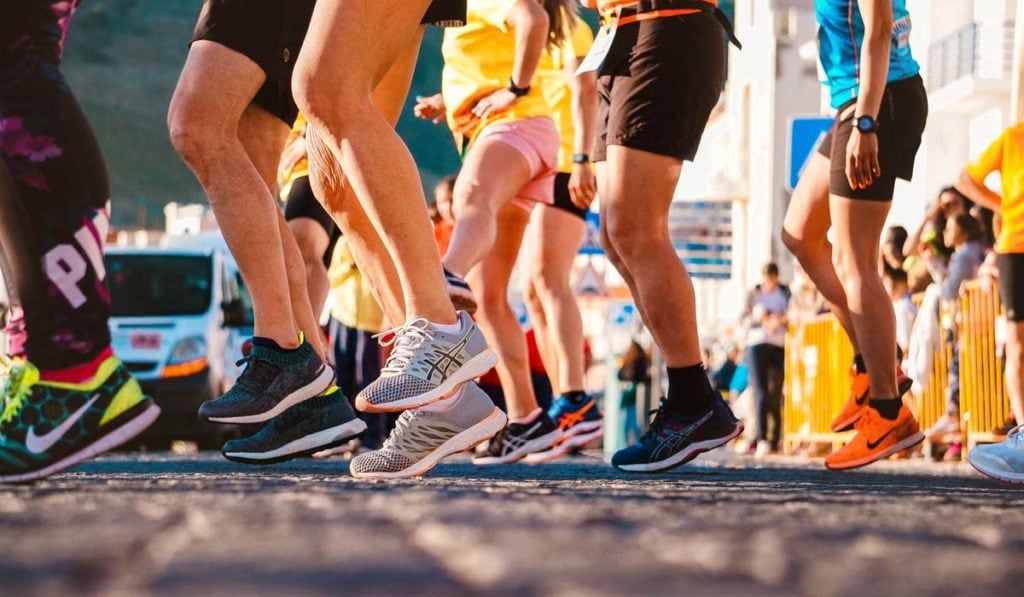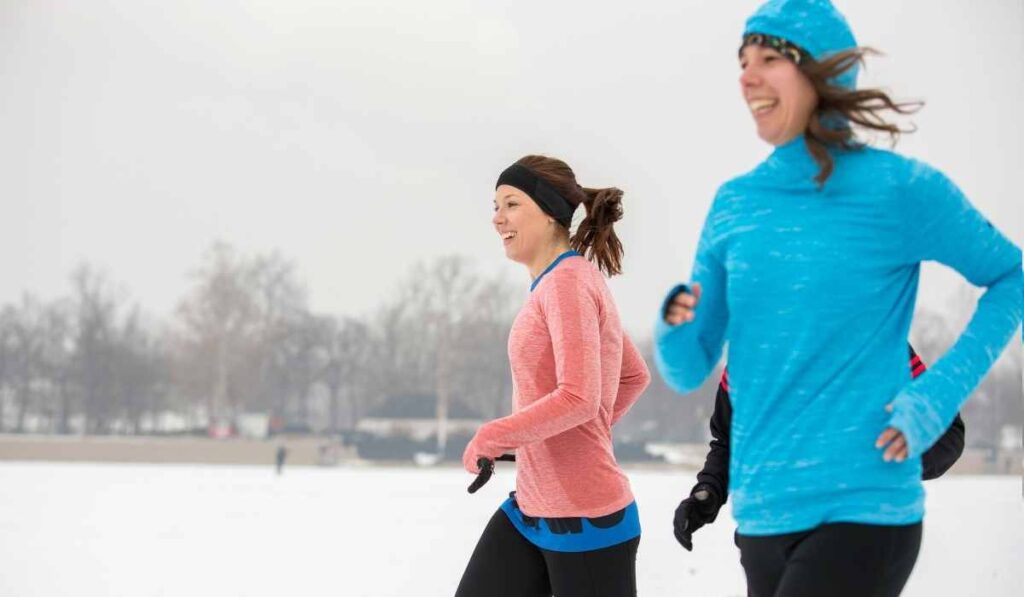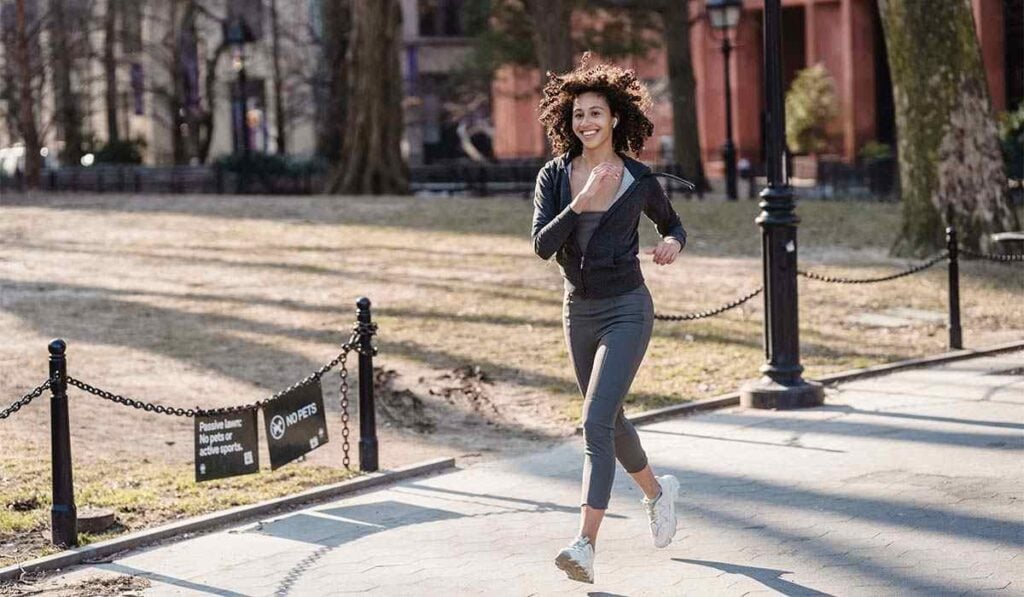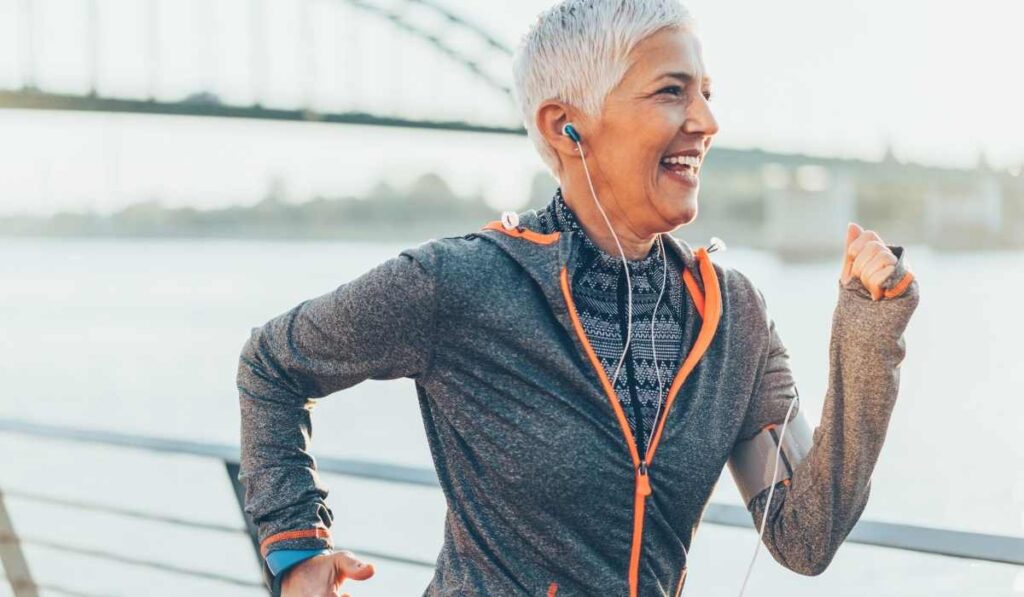
7 Tips for Running With Allergies
- Is it okay to run with allergies?
- Do allergies make it harder to run?
- 7 Tips for running with allergies
- 1. Identify your triggers.
- 2. Time your runs carefully.
- 3. Take preventative measures before heading outside.
- 4. Watch the weather closely.
- 5. Wear a hat and sunglasses.
- 6. Shower immediately after your run.
- 7. If the pollen count is extremely high, run indoors instead.
- Key Takeaways:
Symptoms like a runny nose, headache, watery eyes, and difficulty breathing can make any run miserable. If you suffer from seasonal allergies, it might seem impossible to run outdoors during allergy season. However, there are several things you can do to make it more manageable.
Is it okay to run with allergies?

Running with allergies is perfectly safe unless your allergy symptoms are extremely severe. The most important thing to remember is that you shouldn’t over-exert yourself. Light exercise is ideal, but intense physical work could worsen your symptoms.
Do allergies make it harder to run?

Yes, sometimes allergies can make it harder to run and affect running performance for several reasons:1
- When you run, you breathe faster, which increases the amount of allergens you take in through your nose and mouth. They can also affect your eyes, especially if you’re running outdoors.
- Allergies can increase nasal congestion and discharge, making your allergy symptoms worse while you’re running.
- Seasonal allergies may also make it harder for you to breathe while running. When you exercise and breathe heavily, the air is cooled as you take it into your body, which can cause your sinuses and lungs to constrict. Inhaling dry, cold air can make it hard to breathe, especially when you’re also breathing in allergens outdoors.
7 Tips for running with allergies
As winter comes to a close, you might be excited about getting outside to run in the warmer weather. If seasonal allergies typically make it hard for you to enjoy outdoor running this time of year, try these seven tips to help reduce the severity of your symptoms.
1. Identify your triggers.

If you know seasonal allergies affect you and impact your running performance, one of the best things you can do is to get tested by an allergist. Determining what types of pollens trigger your symptoms puts the power back in your hands by allowing you to tailor your runs accordingly and avoid as many triggers as possible.
2. Time your runs carefully.

Depending on which triggers your allergies most, different times of the day may be better for running with allergies. Adjusting the timing of your runs could help you avoid or reduce your symptoms.
According to the American College of Allergy, Asthma, & Immunology, pollen concentrations tend to peak in the morning hours.2 So, running later in the day may be best if you have seasonal allergies.
Additionally, rain showers wash away all the pollen suspended in the air, providing cleaner air for runners. However, pollen counts can soar after it rains, so running during a rain shower or immediately after might be your best option.2
3. Take preventative measures before heading outside.

Getting ahead of your symptoms can help when you’re running with allergies. If you have severe seasonal allergies, your doctor might recommend taking an over-the-counter allergy medication as soon as allergy season rolls around but before your symptoms even appear. They may also prescribe stronger prescription medications for you.
However, if your symptoms err on the side of mildly annoying and inconvenient, taking an oral antihistamine a few hours before your run might be enough to get relief. Or, take over-the-counter antihistamine eye drops for itchy eyes before heading outside for a run.
If you’re tired of taking all the medications to treat your seasonal allergies every year, your doctor might also recommend immunotherapy with allergy shots or tablets, which may help your body build up a resistance to the pollens that usually trigger your symptoms.3
4. Watch the weather closely.

Running with allergies can still be an enjoyable experience, but paying attention to the weather is key! Check local weather forecasts regularly and monitor the pollen counts in your area. Avoid running outside on windy days because more pollen will be in the air, which is likely to aggravate your allergy symptoms.
5. Wear a hat and sunglasses.

Adding a hat and sunnies to your regular running wardrobe will help keep pollen and other irritating particles out of your eyes and face while you run. Tight, wraparound sunglasses are best and may help reduce the annoying tearing and itching regularly associated with seasonal allergies.
Also, consider wearing a light bandana or mask over your nose and mouth to help catch pollen before it hits your airways. A mouth and nose covering can also help warm the air as you breathe, reducing breathing issues while running with allergies.
6. Shower immediately after your run.

If you run outside, you’ll inevitably return home covered in all types of pollen, whether you can see it with your naked eye or not. And if you don’t wash all those particles off you right away, they’ll end up all over your couch, bed, pillows, and other areas of your home, potentially worsening your allergy symptoms.
To prevent this and keep your home pollen-free, head straight to the shower when you return home from a run. Doing so will help wash pollen off your skin and out of your hair. Changing and washing your clothes will also help.
7. If the pollen count is extremely high, run indoors instead.

If windy weather is kicking up all sorts of pollen or the pollen count is too high in your area, the trusty treadmill is an excellent solution. Vingo can make running indoors more fun and exciting, and you can avoid all the triggering pollen without missing a workout.
Should I run with seasonal allergies?
If your symptoms aren’t too severe and you’re up to it, you can definitely run with allergies! Follow the tips above to get the most out of your run and listen to your body. If you’re feeling run down and sluggish, or your body is sending you signs that you need to slow down or stop, don’t try to push through it. Give yourself time to rest, recover, and hit the pavement again once you feel better.
Key Takeaways:
Running with allergies can be tricky, especially if you prefer to run outside. Although running indoors with Vingo is the best way to avoid irritating allergens altogether, other tips like getting allergy tested, timing your runs wisely, using medications, and wearing a hat and wraparound sunglasses can help make your runs more bearable during allergy season.Sources:








